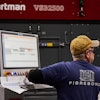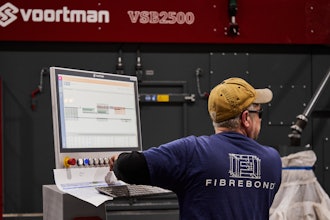WASHINGTON (AP) -- The food industry's self-policing system failed to catch filthy conditions at a peanut processing plant blamed for a nationwide salmonella outbreak, lawmakers said Thursday.
The House Energy and Commerce investigations subcommittee released new documents and pictures on Thursday that attested to long-standing sanitary problems at facilities owned by Lynchburg, Va.-based Peanut Corp. of America. The company is at the center of a nationwide outbreak that has sickened nearly 700 people and is being blamed for at least nine deaths.
The outbreak was traced to a Peanut Corp. company facility in Georgia. Later, another Peanut Corp. plant in Texas was also found to have serious problems. Peanut Corp. is under criminal investigation.
Rep. Bart Stupak, D-Mich., chairman of the investigations subcommittee, questioned how dozens of food companies that bought peanut paste and other ingredients from Peanut Corp. failed to pick up the problems. Part of the reason, Stupak said, is that they relied on safety audits by inspectors who were hired by Peanut Corp.
"There is an obvious and inherent conflict of interest when an auditor works for the same supplier it is evaluating," said Stupak, calling it a "cozy relationship." Peanut Corp.'s private inspector, a company called AIB, awarded it a certificate of achievement in 2008 for "superior" quality at the Texas plant.
At least one food company that used its own auditors, Nestle, decided not to do business with Peanut Corp.
The committee released a 2002 inspection report from Nestle. "They found that the place was filthy," said Rep. Henry Waxman, D-Calif.
Lawmakers have introduced legislation to take food safety oversight away from the Food and Drug Administration and give it to a new agency with stronger legal powers and more funding.
Thursday's hearing came as a major food company joins consumer groups in saying the U.S. food safety system is broken.
The head of Kellogg Co., the world's largest cereal maker, is calling for an overhaul of how the government polices the industry. Kellogg lost $70 million in the salmonella outbreak after it had to recall millions of packages of peanut butter crackers and cookies.
Kellogg's chief executive, David Mackay, wants food safety placed under a new leader in the Health and Human Services Department. He is also calling for new requirements that all food companies have written safety plans, annual federal inspections of facilities that make high-risk foods and other reforms.
Mackay's call for major changes could boost President Barack Obama's efforts to remake the system. Last week, Obama launched a special review of food safety programs, which are split among several departments and agencies, and rely in some cases on decades-old laws. Critics say more funding is needed for inspections and basic research.
"The recent outbreak illustrated that the U.S. food safety system must be strengthened," Mackay said in his prepared remarks. "We believe the key is to focus on prevention, so that potential sources of contamination are identified and properly addressed before they become actual food safety problems."
Peanut Corp. produced not only peanut butter, but peanut paste, an ingredient found in foods from granola bars and dog biscuits to ice cream and cake. More than 3,490 products have been recalled, including some Kellogg's Austin and Keebler peanut butter sandwich crackers.
FDA inspectors swooped down on the Georgia plant in January and found multiple sanitary violations. The problems included moisture leaks, improper storage and openings that could allow rodents into the facility.
Tests by the FDA found salmonella contamination within the plant. After invoking bioterrorism laws, the FDA obtained Peanut Corp. records that showed the company's own tests repeatedly found salmonella in finished products.
How persistent problems at the Georgia plant managed to escape the attention of state inspectors and independent private auditors is one of the main unanswered questions in the investigation.






















